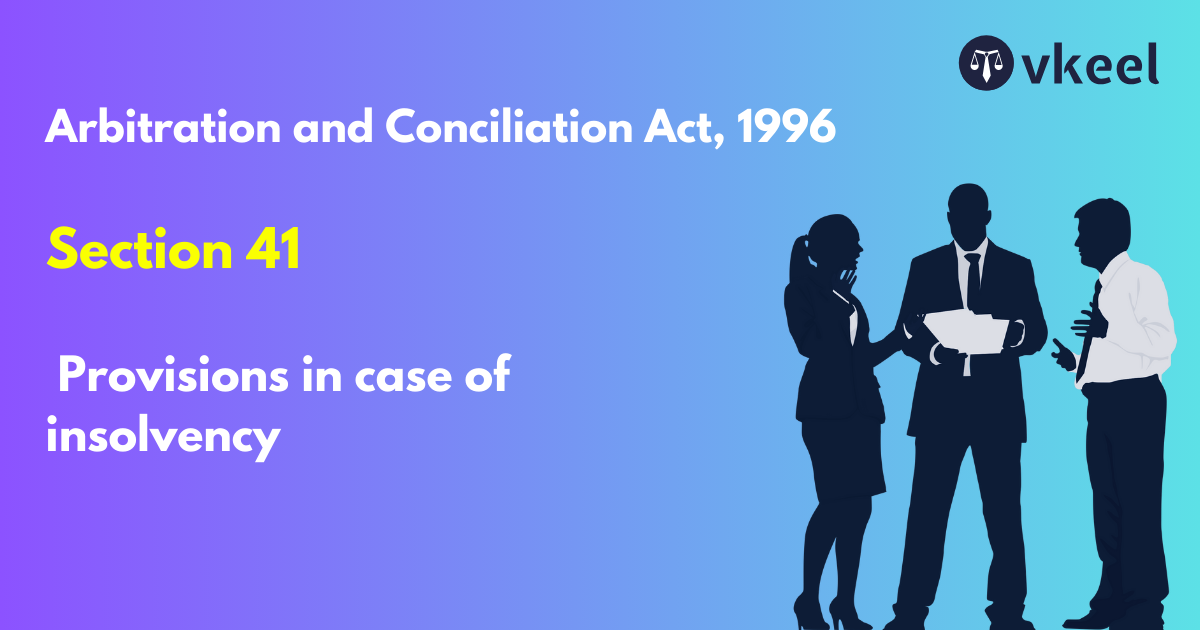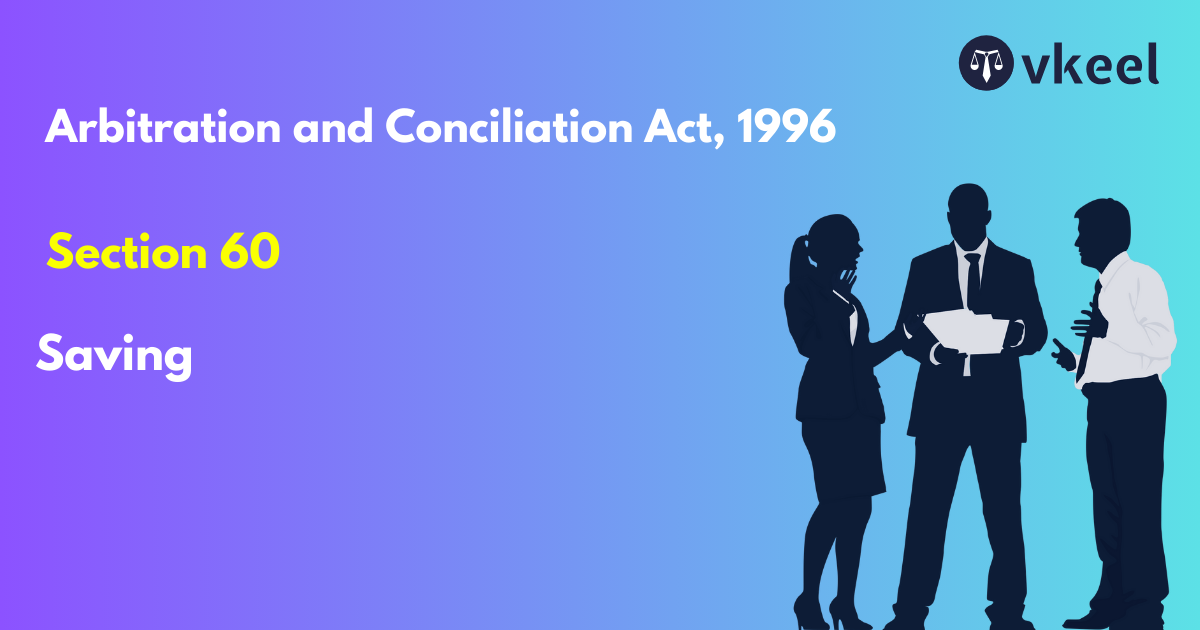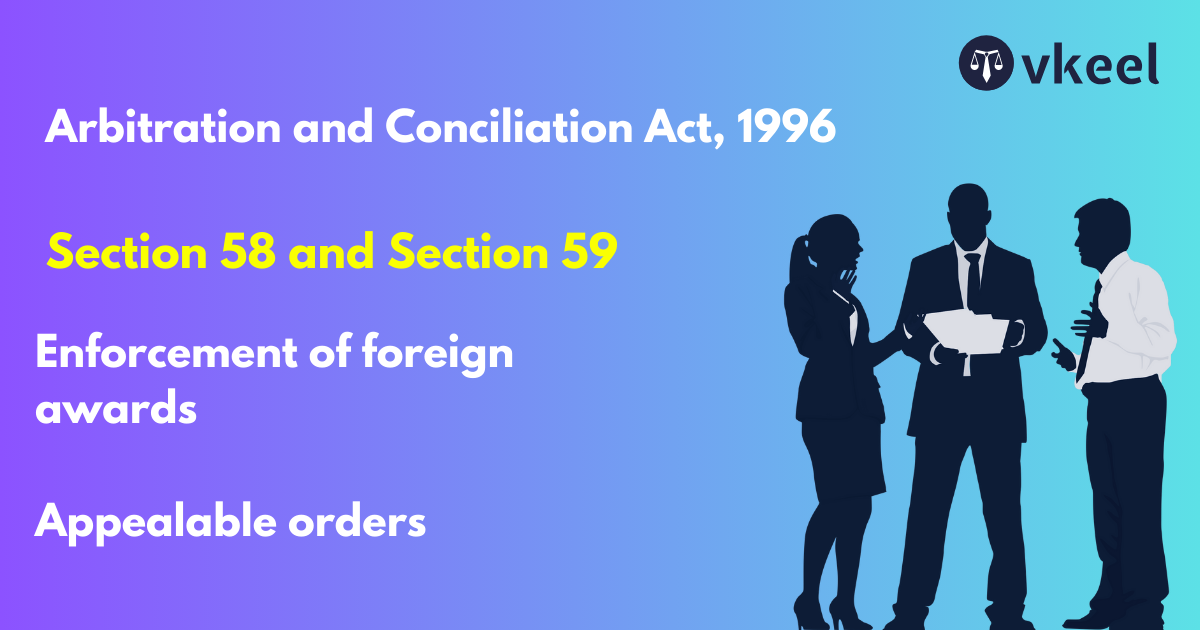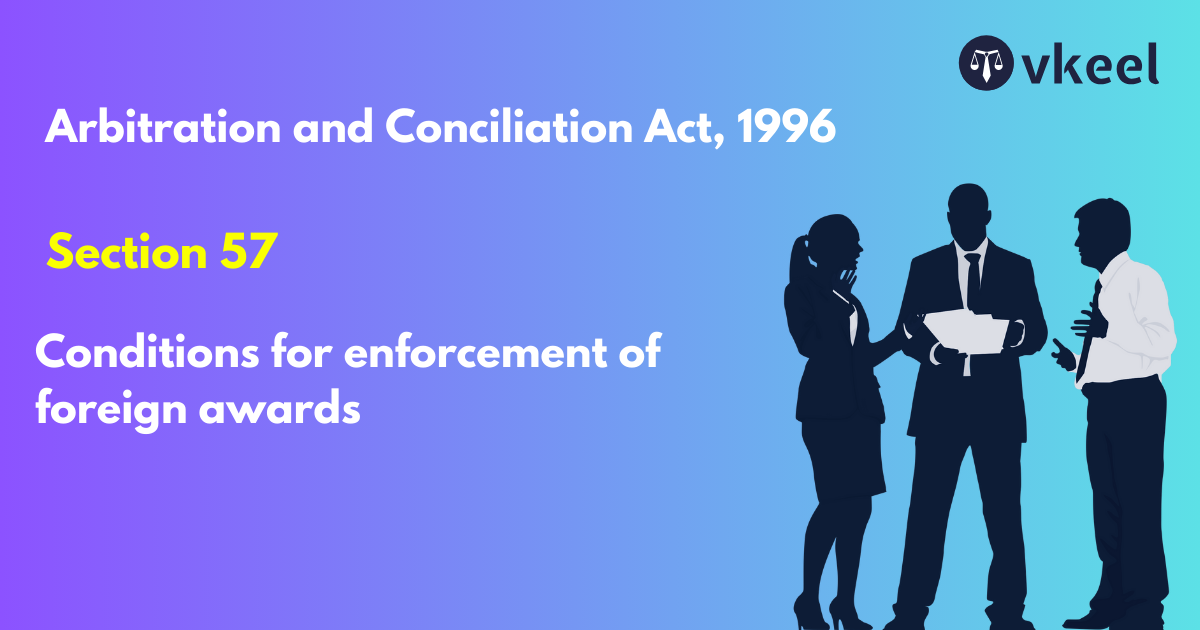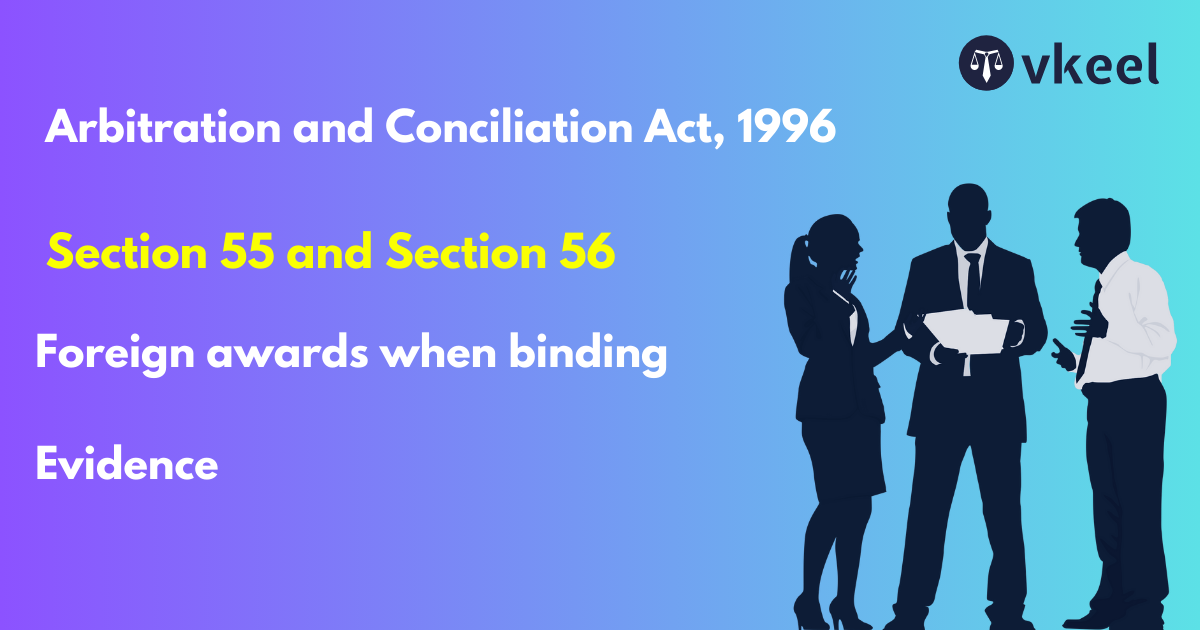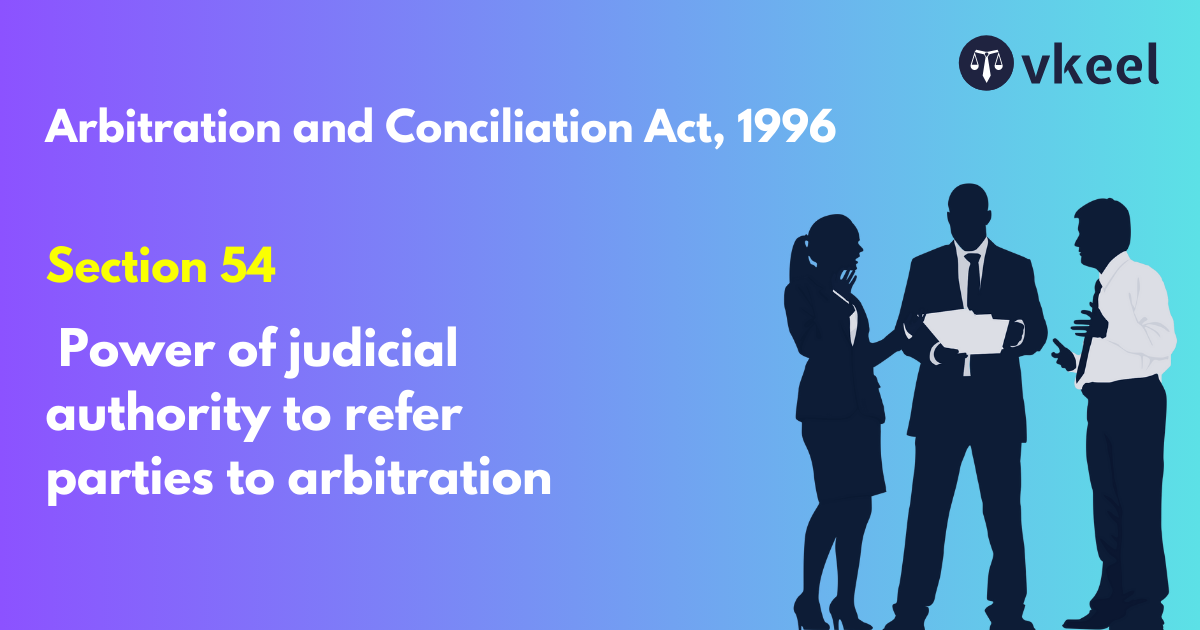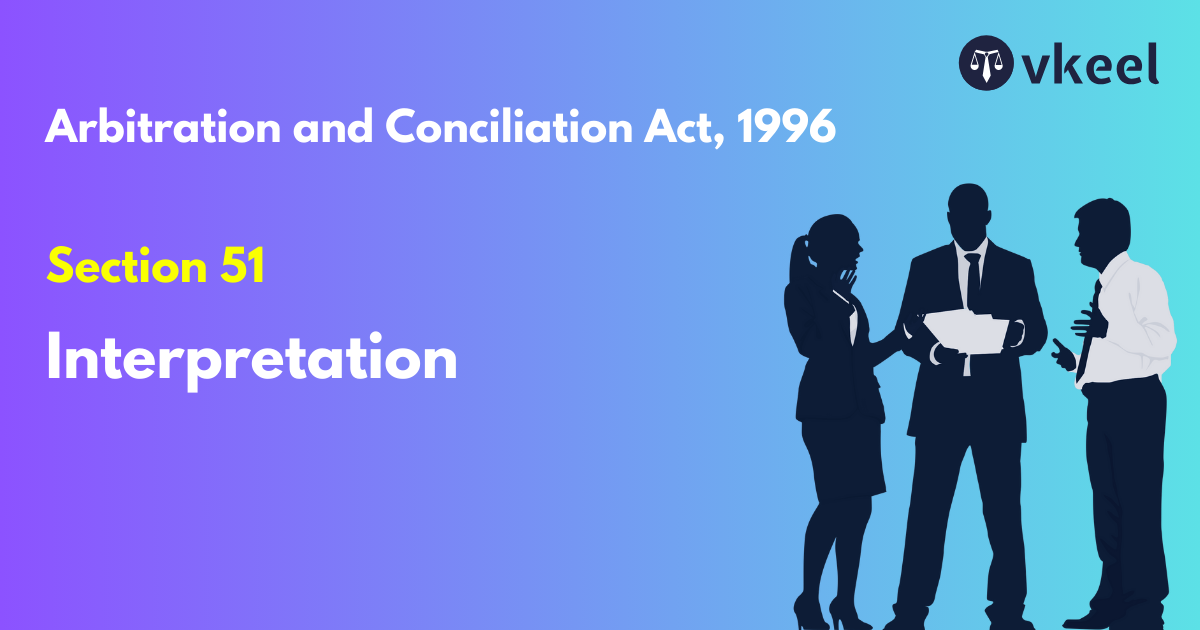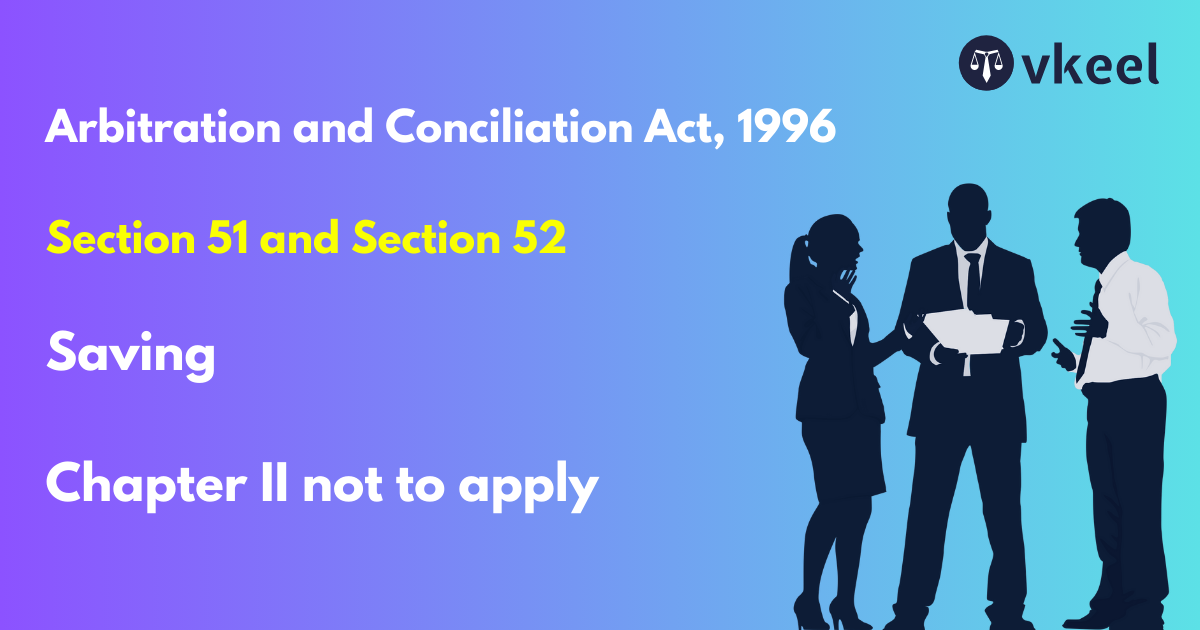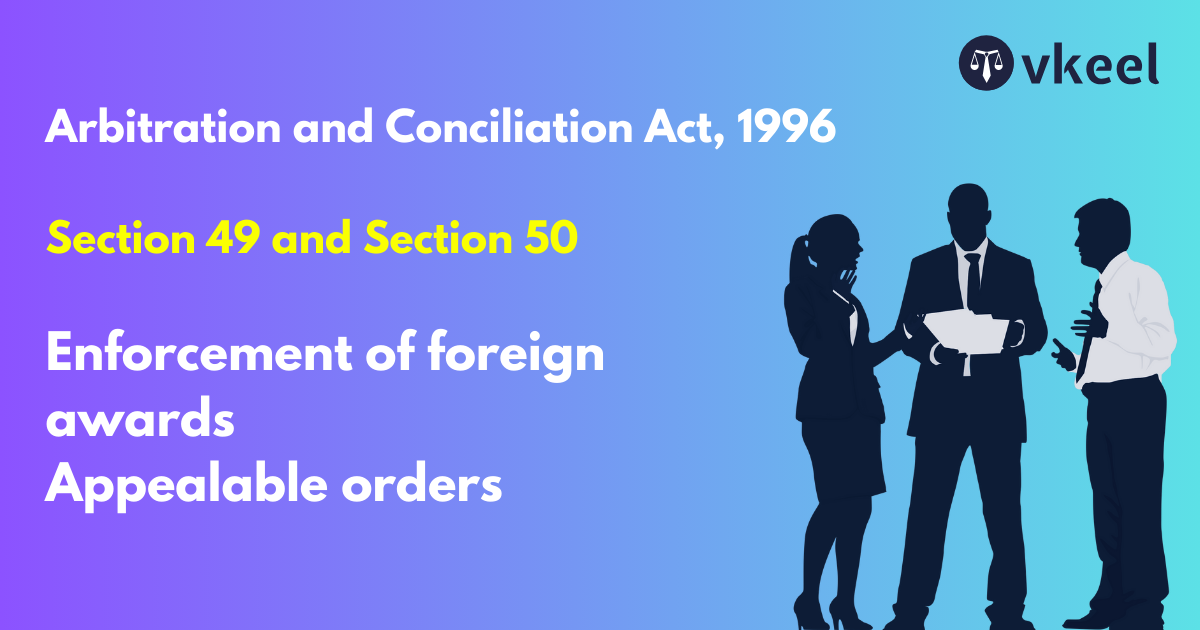Section 41: Arbitration and Conciliation Act, 1996
By Nivedita Dhiman
Table of Contents
Introduction of Section 41
Section 41 of the arbitration and conciliation act relates to cases which have already arisen between the parties to the arbitration agreement and also agreements to refer future disputes to arbitration. If the differences relate to the latter category and are covered by the contract which had been adopted by the receiver, then the matter shall be covered by subsection, in which case sanction of the insolvency court shall not be required; but if the receiver does not choose to adopt the contract, then the agreement would be enforceable by or against the receiver with the permission of the insolvency court.
It needs no explanation that the receiver would choose to adopt the contract only if it is beneficial to the estate which belonged to the insolvent. In case the receiver feels that the adoption of the contract will not be beneficial to the estate, then he would either repudiate it or decline to adopt it specifically.
Section 41 of Arbitration and conciliation
Provisions in case of insolvency
(1) Where it is provided by a term in a contract to which an insolvent is a party that any dispute arising thereout or in connection therewith shall be submitted to arbitration, the said term shall, if the receiver adopts the contract, be enforceable by or against him so far as it relates to any such dispute.
(2) Where a person who has been adjudged an insolvent had, before the commencement of the insolvency proceedings, become a party to an arbitration agreement, and any matter to which the agreement applies is required to be determined in connection with, or for the purposes of, the insolvency proceedings, then, if the case is one to which sub-section (1) does not apply, any other party or the receiver may apply to the judicial authority having jurisdiction in the insolvency proceedings for an order directing that the matter in question shall be submitted to arbitration in accordance with the arbitration agreement, and the judicial authority may, if it is of opinion that, having regard to all the circumstances of the case, the matter ought to be determined by arbitration, make an order accordingly.
(3) In this section the expression “receiver” includes an Official Assignee.
Landmark Judgements of Section 41
Mobilox Innovations Pvt. Ltd vs Kirusu Software Pvt Ltd, 2018
Once the operational creditor has filed an application, which is otherwise complete, the adjudicating authority must reject the application under section 9 if notice of dispute has been received by the operational creditor or there is a record of dispute in the information utility. It is clear that such notice must bring to the notice of the operational creditor the “existence” of a dispute or the fact that a suit or arbitration proceeding relating to a dispute is pending between the parties.
K kishan vs Vijay Nirman Co Pvt Ltd, 2018
The filing of a section 34 petition against an arbitral award shows that a pre-existing dispute, which culminates at the first stage of the proceedings in an award, continues even after the award, at least till the final adjudicatory process under sections 34 and 37 has taken place. Arbitration act, the insolvency process cannot be put into operation without an adjudication on the applicability of section 14 of the limitation act.
Conclusion of section 41
The above-mentioned section of arbitration and conciliation provides the arbitral tribunal the power to run its own arbitral proceedings. The arbitral tribunal has full authority to follow its own rules on how the process of arbitration works. It also has the power to schedule and manage all hearings thereby ensuring flexibility and fairness in the process of arbitration.
Disclaimer:
The information provided in the article is for general informational purposes only, and is not intended to constitute legal advice or to be relied upon as a substitute for legal advice. Furthermore, any information contained in the article is not guaranteed to be current, complete or accurate. If you require legal advice or representation, you should contact an attorney or law firm directly. We are not responsible for any damages resulting from any reliance on the content of this website.

